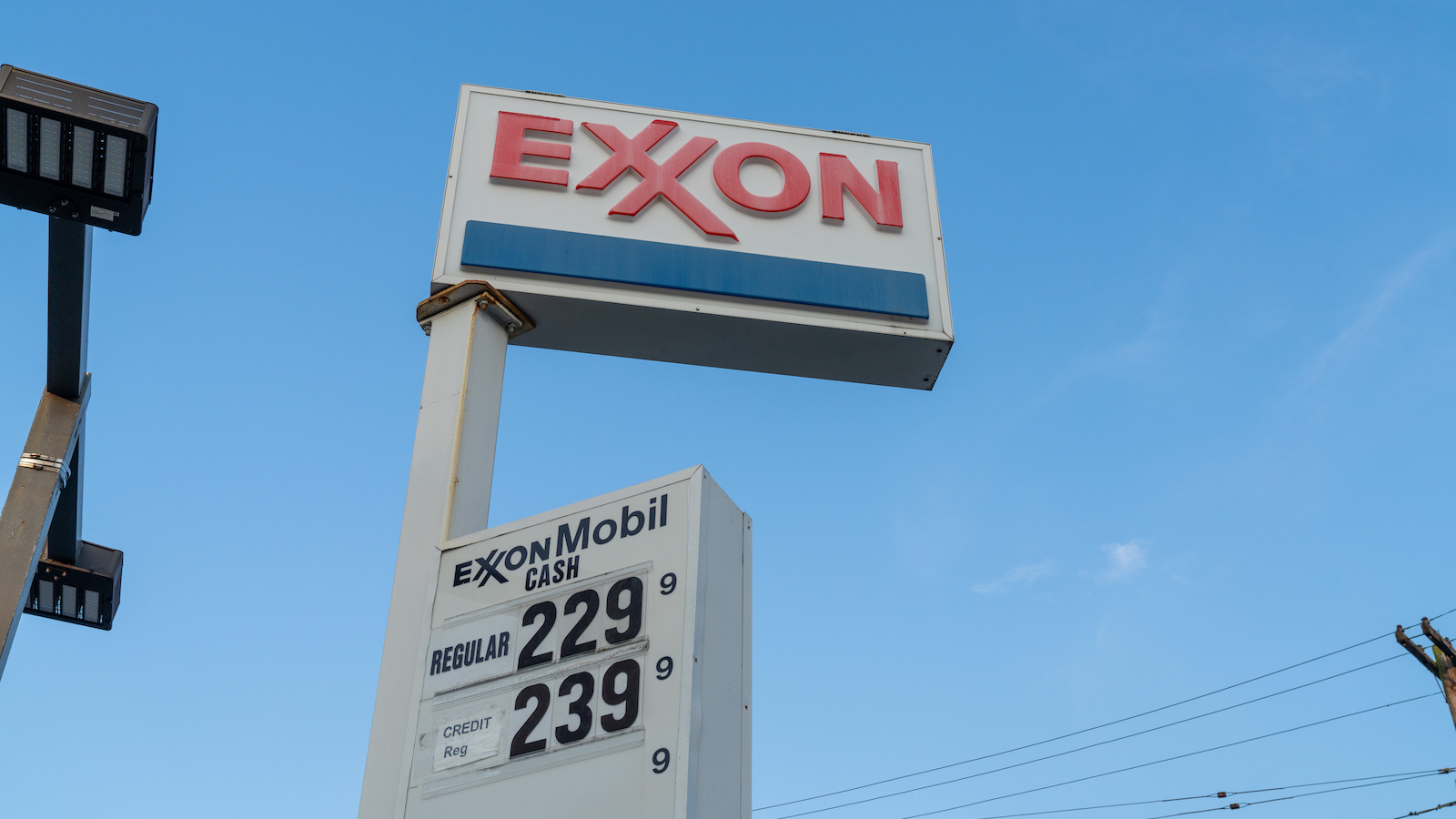ExxonMobil, with a score of -23%, is ranked dead last in Standard & Poor's list of the 500 largest companies in the US when it comes to racial equity and environmental racism. Four other fossil fuel companies (Kinder Morgan, Valero, Marathon, and Occidental Petroleum) made the list of the worst ten on the list. Even the top two firms, Microsoft and CVS, only received 60% on this measurement. Of course these terrible scores were not only due to placing polluting and environmentally damaging fossil fuel facilities in non-white neighbourhoods, but also scoring extremely low on hiring and promotion possibilities, thereby providing more evidence of the intersectionality of life.
ExxonMobil got last place on As You Sow’s racial justice scorecard, in large part due to its pollution of nonwhite communities in Beaumont, Texas. John Nacion / SOPA Images / LightRocket via Getty Images
ExxonMobil isn’t exactly known for being an environmental justice champion. But according to a scorecard published last week, the oil major is dead last among the S&P 500 companies when it comes to racial equity and environmental racism.
The scorecard was compiled by the shareholder advocacy group As You Sow, whose racial justice initiative aims to hold large corporations responsible for their contributions to systemic racism. It released an earlier version of the scorecard in March, evaluating the 500 largest publicly traded companies on 26 racial justice performance indicators — things like workplace diversity, promotion rates of employees of color, and donations to organizations fighting for racial justice.
But following criticism that the scorecard failed to capture big polluters’ impact on nonwhite communities, an update from As You Sow puts environmental justice front and center. One new criterion rewards companies for acknowledging environmental justice issues, and three others dock points from firms that have violated environmental regulations, incurred pollution penalties, or harmed nonwhite communities. This update, said Olivia Knight, manager of As You Sow’s Racial Justice Initiative, has helped paint a more complete racial justice profile for each company. “We see the environmental and racial justice as completely linked,” Knight said. “You can’t have racial justice without acknowledging and remedying environmental justice.”
The evaluation’s results weren’t rosy for any of the S&P 500 companies — Microsoft and CVS, tied for first place, got a total score of only 60 percent — but the energy sector stood out for its particularly bad performance. Overall, the sector scored an average of just 3 percent, with seven companies’ scores dipping into the negative numbers — meaning that their actions had done more harm than good to low-income and nonwhite communities. Fossil fuel producers made up half of the scorecard’s worst 10 companies on racial justice, with ExxonMobil at the very bottom, along with other oil and gas firms like Marathon Petroleum and Valero Energy.
According to Knight, the energy companies’ low scores were largely attributable to the sector’s ongoing legacy of polluting nonwhite communities. Across environmental justice criteria, all of the S&P 500’s 23 energy companies received scores below zero. ExxonMobil, for example, was penalized for its activities in Beaumont, Texas, where one of its crude oil refineries has regularly been in noncompliance with the Clean Air Act, spewing carcinogens into a majority-Black neighborhood.
“Environmental racism is built into their business plan,” Knight said. “They have allowed all of these environmental violations to become just business as usual.” ...
The report also mentions Marathon Petroleum’s oil refineries near Black and brown communities in southwest Detroit, where vapor releases and chemical leaks have exacerbated local cancer and asthma rates....
Valero, which got 491st place on As You Sow’s scorecard, was criticized for a proposal that would have routed a natural gas pipeline through 7 miles of 97-percent-Black neighborhoods in Memphis, Tennessee, avoiding majority-white suburbs in the north of the city. ...
Beyond its habit of putting polluting infrastructure in predominantly nonwhite neighborhoods, another reason the energy sector underperformed on the scorecard was what As You Sow called a “serious lack of diversity, equity, and inclusion disclosure.”
https://grist.org/climate/as-you-sow-racial-justice-scorecard-exxonmobil/

